We have adopted the Montessori methods with a deliberate infusion of STEAM education. This blend provides our young learners with an all enriching, experiential and problem-solving learning program. Learning activities are in the subject areas of Practical Life, Sensorial, Language, Maths, Science, Botany, Zoology, Art & Craft, Music & Movement, Geography, History, Ecology, Technology and Engineering. The pre-nursery class takes lessons in the first eight subject areas while the nursery class takes lessons in the first twelve subject areas. The pre-primary takes lessons in all fourteen Subject areas.
Montessori Education
The Montessori method is a child-centered approach that guides learners to initiate their own learning and to learn actively by doing, at their own pace. In a typical Montessori classroom, young learners are shown how to do an activity and they are immediately given the opportunity to explore getting it done by themselves with little or no interference from the learning guide/instructor except when help is requested by the learners.
Children are given the freedom (within limits) to use, explore and make amazing discoveries with the Montessori materials, specially designed to concretize their learning. This approach of allowing children to solve their own problems helps build their creativity, imagination, intelligence, confidence, independence, self-discipline, dexterity, self-esteem, critical thinking, and problem-solving skills.
Steam Education
STEAM is an acronym for Science, Technology, Engineering, Art and Maths. STEAM emerged from STEM (without the Arts). Georgette Yakman began the concept of STEAM education in 2006 to show the relationship and interdependence of subject learning areas in real life. STEM began in the United States of America in 2001 due to the need to move learners from rote learning in schools to preparing them for the fastest growing career paths of Science, Technology, Engineering and Maths (U.S. Bureau of labour Statistics). Arts was added to STEM to make learning in STEM more fun and more engaging as well as enhancing learners critical and creative thinking in problem-solving.
As occupations in STEM field continue to grow and innovations in STEM continue to change the way things are done, we at The Pier School find it expedient to prepare our young learners for possible creative innovation in the future as they “learn, think and innovate” now, in their own age-appropriate way.
See below our blended/integrated montessori and steam activities.
Practical Life Activities
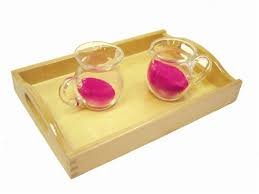
The exercises of Practical Life which are real everyday activities are the foundation of Montessori Education. They are usually carried out with real objects that are tailored to the child’s size for ease of handling. Children are provided with a range of simple everyday activities like carrying apparatus, pouring, folding table mats, using cutlery, wiping spills, hand washing and more. They also learn basic graces and courtesies like saying ‘please’, ‘thank you’ and ‘I’m sorry’. These activities help children build and develop their fine and gross motor skills (control of movement), independence, a deep sense of self-worth, social skills, self-discipline, good work habit and a sense of responsibility.
Sensorial Activities
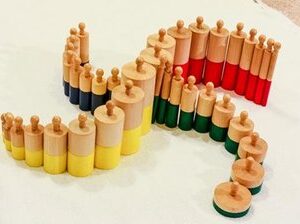
Children learn and take in everything around them with the help of their senses; the primary purpose of sensorial exercises is to refine these senses. Children are provided with a variety of materials that help them learn to make visual, muscular and mental discrimination between sizes, shapes, colours, sounds, texture, taste and smell. Sensorial activities/exercises also help in the early detection and correction of sensorial impairment that may be present in children.
Language Activities
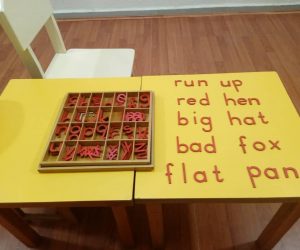
Montessori Language activities and exercises help develop Children’s vocabulary and enrich their language in the areas of listening, speaking, reading and writing. It adopts a multi-sensory approach that combines phonics, story reading, storytelling, active questioning/listening, songs, rhymes, poems, creative thinking, creative writing and nature walks to achieve early language development in children.
Mathematics Activities
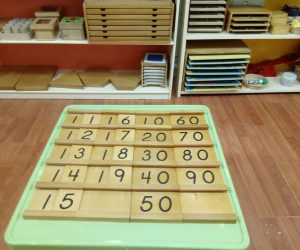
A strong foundation for Mathematics is laid with Montessori Mathematics materials which are particularly attractive, intriguing and appealing to children. The materials help children to conceptualize abstract numbers as concrete entities as they use concrete objects to do simple addition, subtraction, multiplication, division, word problems and learn clock reading. They are also introduced to the concepts of fractions, decimal system, number bonds and terms like length, width, height and weight.
Cultural Studies
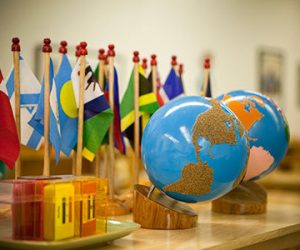
The Cultural area of the Montessori Curriculum is what gives the preschool child an edge, the Montessori edge. It introduces him to the basics of Geography, Botany, Zoology, History, Science, Ecology, Art & Craft and Music & Movement.
Steam Activities
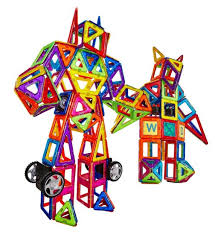
STEAM activities provide our young learners with hands-on and competency-based learning in Science, Technology, Engineering, Arts and Mathematics. Through these activities, they are able to see how science inquiry, technology literacy, engineering design, the arts and mathematical thinking connect to real life situations and help in solving real life problems.
Find Out More About Us...

Maria Montessori
Dr. Maria Montessori founded the Montessori Method of Education in 1907. Maria adopted some of the methods she had used with the special needs children, and developed more learning materials that awakened a desire to learn in children. She achieved great results with her methodology.
Team
The school director manages the affairs of The Pier School with the vast wealth of insights provided by the advisory board on educational management, excellent educational service delivery, technologically enhanced education delivery, business improvement, legal perspectives, good governance, growth, and sustainability.
